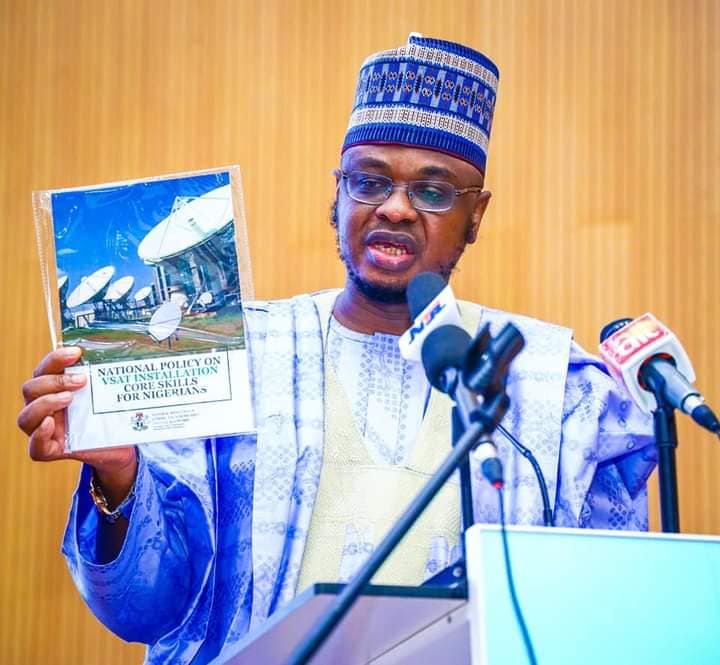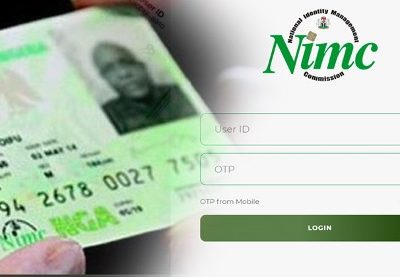The Nigerian government this week in Abuja declared its masterplan for skill development in the satellite industry and accelerated broadband penetration across country with the launch of the National Policy on Very Small Aperture Terminal (VSAT) Core Skills by Minister of Communications and Digital Economy, Dr Isa Ali Ibrahim Pantami.
Jobs, training and broadband connectivity
Under the new deal, about 600 Nigerian youths have started training on VSAT installations as part of government’s commitment to empower Nigerians with the requisite digital skills for a globally competitive digital economy.
The deal also plans to pull from NIGCOSAT satellite resource to expand broadband connectivity particularly to rural communities.
“The Nigerian Satellite (NigComSat–1R) is one of the critical national solid infrastructures under the purview of the Federal Ministry of Communications and Digital Economy that can be leveraged to deepen broadband penetration and to deliver Direct to Home (DTH) Services in the country,” said the minister as he officially flagged off the training programme in the six geo-political zones of the country.
The first phase covers 12 states namely; Kano, Kebbi, Ekiti, Lagos, Gombe, Bauchi, Abia, Anambra, Niger, Plateau, Rivers and Akwa Ibom states.

Launched under the auspices of the Nigeria Communications Satellite (NIGCOMSAT), a communication satellite agency under the Ministry of Communications and Digital Economy, Pantami noted that “VSAT deployment and installation, is a multibillion-dollar industry globally, which will provide jobs in the near future and Nigeria has a population advantage in this regard. It is therefore imperative that we leverage on the immense resources at our disposal to empower our citizens and properly position them on a globally competitive pedestal”.
Broadband drives digital economy
Broadband connectivity drives digital economy, Pantami noted against the premise that VSAT is an obsolete resource, which has once more gained relevance in today’s new economy. VSAT skill development has become fundamental to sustaining the steadily growing digital economy, the minister added.
His words” “We are developing skill acquisition policies for the various infrastructure required to drive the digital economy. According to Satellite Market & Research publication, VSAT market is getting more prevalent in several emerging economies, particularly in Asia Pacific and Latin America, which are undertaking initiatives to digitalize their economies to compete with their developed competitors.”
According to the minister, the policy captures President Muhammadu Buhari’s digital skills, job creation and economic development agenda as well as the United Nation’s recent global policy on capacity building for citizens in the area of VSAT installation core skills.
CEO, NIGCOMSAT Ltd, Dr. Abimbola Alale, expressed the commitment of the communication satellite enterprise to actualize government’s agenda for broadband and skill development while commending the minister for his support.
Also, Chairman of Board of Directors, NIGCOMSAT Ltd, Mallam Yusuf Kazure, affirmed that Nigeria’s development goals are only materializable if aligned to global technology trends. Kazuare said Nigeria must leverage digital technologies to drive government digital services, optimize its communications infrastructure such as NIGCOSAT-1R “for national economic development and digital innovation to create value and prosperity.”































